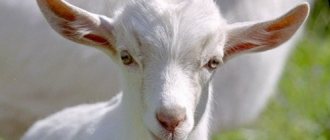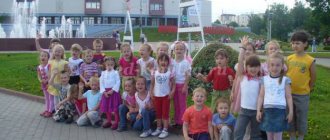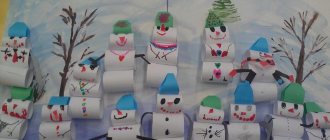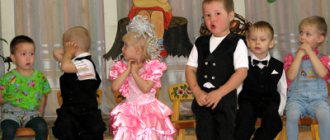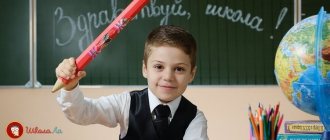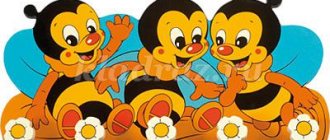Pedagogical project on patriotic education of preschool children “My Small Motherland”
Pedagogical project on patriotic education of preschool children “My Small Motherland”
Project participants: educators, parents, senior group students Project type: short-term
Problem: Familiarity with their native country, native village, the history of their native land, its attractions and famous people is of great importance for the cognitive, social, personal and moral development of preschool children. Parents have insufficient knowledge about their region, do not pay attention to this problem, considering it unimportant, children do not have sufficient information about their native land. Without sufficient knowledge, it is difficult to form a respectful attitude towards the small Motherland. Consequently, we consider this problem to be relevant not only for our kindergarten, but also for society as a whole.
Pedagogical project passport: Topic: “My small Motherland”
Project manager:__Anzhelika Grigorievna Kekhvaeva – middle group teacher.
Venue: MBDOU d\s No. 16 “Bell”
Features of the project: By the nature of the product: educational and research
By number of children: group.
Duration: short-term
By knowledge profile: all educational areas
“Love for the Motherland begins with family.” F. Bacon
Project goal: To introduce children to their native land and its attractions. Cultivate a sense of pride in your small Motherland, the desire to keep it clean and beautiful.
Project objectives:
1. Introduce children to their native land (history, sights). To introduce the names of those who founded and glorified, who fought for our Motherland during the Second World War.
2. Teach children how to navigate the city streets and follow the rules of safe movement around the city.
3. Expand children’s knowledge about the flora of the city of Pyatigorsk. To form an environmental culture in children and their parents, a desire to take part in environmental protection activities.
4. Cultivate interest and love for one’s hometown, region, the ability to see beauty and be proud of it.
Planned results and products of the project:
1. Children can know and name their place of residence: region, city.
2. Children can give their home address, the name of the kindergarten; experience love and affection for one’s home, family, kindergarten, and go to kindergarten with pleasure.
3. Children can know and name the place of work of their parents, the significance of their work; feel pride and respect for the work of adults; show attention and respect to veterans, the elderly, and provide all possible assistance.
The result of the children's activities: an exhibition of drawings and crafts dedicated to Victory Day in the Great Patriotic War, a holiday dedicated to this date.
Abstract: Activities are carried out in continuous educational activities, in joint activities of the teacher and children in the form of: conversations, leisure, observations of the nature of our region, reading fiction, guessing riddles, educational, educational, role-playing, outdoor games.
Stages of work on the project:
Stage I “Preparatory”
Stage II “Basic”
Stage III “Final”
Relevance of the topic: We are burning with the desire to cultivate love for the Motherland, but it turns out that we are not able to instill in a child love for what is closest to him - his home and kindergarten, but this is the basis of the foundations of moral and patriotic education, its first and most important stage. A preschooler must first recognize himself as a member of the family, an integral part of his small homeland, then as a citizen of Russia, and only then as an inhabitant of planet Earth. You need to go from near to far. The family is currently going through hard times. In an effort to earn their daily bread, parents pay less and less attention to their children and their upbringing, and the number of single-parent, disadvantaged families is growing. It is increasingly difficult for a child to love his home, family, and kindergarten too. Therefore, it is necessary to create conditions for the formation in children of an emotionally rich image of their home and kindergarten. Children must learn not only to take, but also to give: to take care of loved ones from childhood, to be attentive to each other.
Explanatory note
The problem of patriotic education of the younger generation is one of the most pressing today. The state program “Patriotic Education of Citizens of the Russian Federation” has been adopted, aimed at all social strata and age groups of Russian citizens. In this regard, the work of researchers and preschool educational institutions has noticeably intensified; scientific and practical conferences on the issues of patriotic education of children began to be held one after another. Within the framework of the Federal State Educational Standard for Preschool Education, for children of senior preschool age, the direction of civic-patriotic education is included in the educational area “Cognitive Development”.
Patriotism does not mean only love for one’s homeland. This is much more... This is the consciousness of one’s inalienability from one’s homeland and an integral experience with it of its happy and unhappy days.
Tolstoy A. N.
An older preschooler should be focused on:
1. Patriotism - love for your people, for your small homeland, service to the Fatherland;
2. Social solidarity – personal and national freedom, trust in people, institutions of the state and civil society, justice, mercy, honor, dignity;
3. Citizenship – service to the Fatherland, rule of law, civil society, law and order, multicultural world, freedom of conscience and religion. Thus, in relation to a child 6-7 years old, it is defined as the need to participate in all matters for the benefit of the family, kindergarten, native village, homeland, to feel like one of the representatives of living nature, to have such qualities as compassion, empathy, feeling self-esteem and to recognize oneself as part of the world around us.
Stages of work on the project:
Preparatory stage: 1.Creation of a subject-development environment in kindergarten.
2.Organization of walks, activities, games, conversations. Looking at drawings and photographs about your small homeland. Introduction to literary works. Use of games.
3. Increasing the competence of parents on issues related to patriotic education.
Main stage of work:
| Name of events | Subject |
| Working with GCD children | Speech development, cognitive development : Conversation “My Motherland - Russia” Conversation “History of the emergence of the city of Pyatigorsk” Examination of paintings by Stavropol artists. Productive activities : “My Street” – construction from building material “My Family” – drawing “My kindergarten” - drawing “Nature of our region” - application “This Victory Day” - paper construction Artistic and aesthetic development : (music) Listening to audio recordings: “If you go on a journey with a friend” "From a smile" "Russian anthem" "Go beyond the seas and oceans" |
| Games | Role-playing games : “Shop”, “Mail”, “Home”, “Mothers and Daughters” Board games : Lotto “Folk Crafts”, educational game “Fauna of our region”, educational game “Inhabitants of Planet Earth”, dominoes “Folk Crafts” Outdoor games : “Train”, “Be careful”, “Birds and a car”, “Fast rockets are waiting for us”. Didactic games : “Coat of arms of the city”, “Name the streets of our village”, “Flag of Russia”, “Tell me where you live” and others. |
| Introduction to literature | N. Nosov “Patch”, S. Mikhalkov “Uncle Styopa is a policeman, My street”, “My grandmother” S. Kaputikyan, “Don’t stop me from working”, “That’s how mom” E. Blaginina riddles, poems, proverbs. |
| Targeted walks, excursions | “To the Russian birch tree”, “To the monument to the soldiers who fell in the Second World War”, “School local history museum” |
| Working with parents | Questioning parents on the topic: "Patriotic education of a child" Consultation for parents on the topic: “Moral and patriotic education of preschool children” |
| Working with teachers | Selection of materials for creating a subject-development environment, didactic games, fiction. Consultation for educators: “Stages, forms and methods of patriotic education of preschool children” |
The final stage:
Final events: “Victory Salute” holiday Exhibition of drawings and crafts dedicated to Victory Day in the Great Patriotic War.
Project summary:
Involving the family in the patriotic education of children requires special tact, attention and sensitivity from the teacher to each child. The voluntary participation of everyone is a mandatory requirement and condition of this project.
The central role in civil society is occupied by the individual citizen. The family plays a key role, since it is the family that performs a number of functions related to the needs of the individual and society: reproductive, educational, economic, spiritual and emotional, and many others.
The formation of patriotic feelings is more effective if you establish a close connection with your family. The position of the parents is the basis for the family education of the child. From an early age, a child can feel involved in the life of his people, feel like a son or daughter not only of his parents, but of the entire Fatherland. This feeling should arise even before the child understands the concepts of “homeland,” “state,” and “society.”
In addition, patriotic education forms in a future person love for other people, teaches him to help people, and cultivates nobility in a person. Therefore, today the primary task of all teachers is to instill in children a love for their homeland, for their city, for their family and friends, to teach them to help each other, in general, to raise a real worthy person - a citizen of the Russian Federation.
The result of the project
The results achieved allow us to conclude that as a result of the activities that were carried out, a positive result was obtained.
* A subject-spatial development environment (DSDE) has been created.
* Developed advisory and practical material for parents and teachers on this topic.
* Children began to show a pronounced interest in the sights of the city, region, and symbols of the country.
* A sense of pride in one’s country, the “small Motherland” has developed.
* The project made it possible to:
- realize the creative potential of not only children, but also their parents,
-attract the attention of adults and children to interesting social phenomena,
- strives to explore natural objects,
* In the process of working on the project, parents, children, and the teacher became one team. Parents began to actively participate in all activities held in kindergarten.
3
MAGAZINE Preschooler.RF
Project: “My small Motherland.”Prepared and conducted by: teacher of the senior group of preschool education Lykhina A.V. Municipal state preschool educational institution "Kindergarten No. 9" in Kirensk.
Project passport:
PROJECT TYPE: cognitive-speech.
BY NUMBER OF PARTICIPANTS: group.
DURATION: long-term.
PARTICIPANTS: senior group students, teacher, music director, parents.
AGE: 5 years.
AUTHOR OF THE PROJECT: teacher of the senior group Lykhina A.V.
Problem: We, adults, want to instill in our children love for the Motherland, but it turns out we are not able to instill love for those closest to us - our home and kindergarten
Project goals: fostering a feeling of love for one’s hometown; the formation of a spiritual and moral attitude and a sense of belonging to one’s home, family, kindergarten.
Project objectives:
Systematize children's knowledge about the sights and nature of their native land.
Arouse positive emotions in the process of familiarization with local history material.
Teach methods of practical application of knowledge in gaming and speech activities.
Stimulate the manifestation of cognitive interest in the phenomena of the history of your city.
Promoting the active involvement of parents in joint activities with the child in family and kindergarten settings
Cultivate a respectful attitude towards the property of the native land.
Cultivate love for home.
“Cobweb” based on the project “My Small Homeland” .
Project implementation stages:
1. ORGANIZATIONAL.
Teacher:
- reveals the problem
- defines the goal
- outlines tasks to achieve the set goal.
Children:
- entry into the project.
Parents:
- elicit a positive response from parents
existing problem.
2. Activity planning:
Teacher:
GCD (cognitive development):
Conversations: “Native land” , “What do I know about my city?” , “History of the city” , “Sights of our city” , “When we are united, we are invincible” .
Acquaintance with the symbols of the city of Kirensk (coat of arms, flag).
Design of pages of the city chronicle “Our History” .
Excursion to the historian - local history museum.
Excursions to monuments of military glory, to the library.
Reading and learning poems about the Motherland, the nature of the native land.
Musical holiday “I love my town Kirensk” .
GCD (artistic and aesthetic development):
Exhibition of children's drawings “Why do I love my Motherland?” .
Modeling “Birds of the native land”
Construction of the “House on the Embankment”
Presentation “Architecture of the native land” .
Compiling stories: “Why do I love my Motherland?” , “Professions of our city” , “How did our city arise?” , "Where we live?" , “What is under our feet?” .
CHILDREN. Learning games of poems, participating in projects, exhibitions and productive activities; searching with parents for new knowledge about their small homeland.
PARENTS.
Conversations “Our Land” , “Wheel of History” .
Search for information about the history of the city of Kirensk.
Participation in the photo shoot “I explore the world” .
Participation in the design of pages of the city chronicle “Our History” .
Meetings with interesting people with the participation of parents.
View and participate in the holidays of our city..
The final stage.
A qualitative analysis of the changes occurring during work with children showed the following:
It was possible to clarify and systematize children’s knowledge about objects and natural phenomena, promote the development of verbal and logical thinking and the development of the emotional sphere of children.
positive dynamics are visible in changing the attitude of preschoolers to the world around them, in the development of ecological culture, in the formation of a sense of a small homeland and awareness of themselves as part of a large country called the Motherland.
This work allows us to fully implement the regional and partially federal components of the state educational standard.
| Next > |
